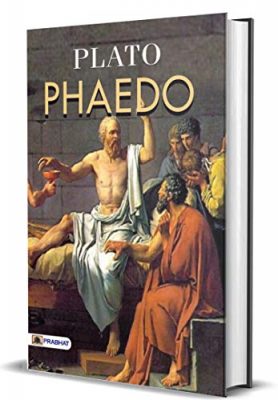The Phaedo is one of Plato’s dialogues narrated from the point of view of one of Socrates’ students, Phaedo. It contains detailed explanations about the Forms and the arguments that seek to prove the immortality of the soul. Phaedo narrates the final moments of Socrates after he was condemned by the Athenian court to commit suicide and offers a myth about what happens to the soul after death.
The Theory of Forms
The most philosophical discussion in the book centers on the Theory of Forms. Of all of Plato’s dialogues, the Phaedo alone contains a lengthy discussion of the Forms, as it seems like the Forms are the basis on which Plato’s other arguments would grow. The theory itself is largely an abstraction but despite this, Plato does not seem to be overly concerned to argue about it. Plato did not even set up a grand entrance to introduce this theory of his. Instead, he only had Socrates mention it, followed by the agreement of all his conversation partners.
While discussing the Forms, Socrates explains that they are not about material things but about ideas. He states that the forms are the Form of Beauty, Form of Justice, or the Form of the Oddness of the number five. He also said the forms include the Form of Equality or the Form of Death.
On the Immortality of the Soul
The narration of Socrates’ final moments portrays the philosopher as calm and unaffected by his impending death. Plato depicts his teacher as an individual who has no great attachment to worldly things. According to Socrates, the process of death is nothing but the soul leaving the body. Phaedo recounts that Socrates asked to be given the chance to take a bath before he drank the poison hemlock. Socrates’ reason for this is that he wants to clean his body so that nobody else should have to clean it after he dies. Then, one of Socrates’s friends, Crito, asks him how he wants to be buried, and the philosopher replies that he would let them, his friends, decide. Socrates explains that when he dies, his soul will simply leave his body and continue to live eternally, while his body will no longer be him. Using this explanation, Socrates reminded his friends not to be sorrowful during his burial because it was no longer him that they would be burying. Socrates says that philosophers should lead lives that are far away from bodily delights such as sex, drink, and food. Instead, he says that philosophers should only be interested in things that help their souls grow and that the main goal should be to create as much distance as possible between the soul and the body. To Socrates, the senses are not as accurate as the reasoning faculty, and therefore, they may lead the individual to incorrect notions. And so, wisdom can only be gained by the individual through reason while staying away from bodily urges.
Socrates asserts the existence of justice that is independent of external circumstances. He also claims that beauty and goodness do exist, along with other concepts related to them. These concepts cannot be grasped by the senses, and can only be comprehended through reasoning. It is best to examine these concepts if we have a clear understanding of them and of their nature. Death can be viewed as a good thing because when the soul has left the body, it is then freer than ever from the burden of bodily urges and can therefore reflect more clearly on truths. And so, death is a blessing to philosophers and to anyone who is seeking truth. Even long before death, philosophers and truth-seekers should practice death by enlarging the gap between their souls and their bodies.
Socrates emphasized that a philosopher who is calm in the face of death is brave and composed. Any individual who shows fearlessness in the face of death may only be fearing something else he imagines as something worse. Any individual who is not a philosopher may display self-restraint but only to the extent that he is gaining pleasure from restraining himself. Socrates points out that these kinds of individuals are only choosing what kind of pleasure to indulge in and what kind of pain to endure. The only kind of individual who displays real courage in the face of death is the philosopher. His courage and calm is based on wisdom, which illuminates things in their proper light, and lets him see that worldly affairs are not worthy things to become attached to.
